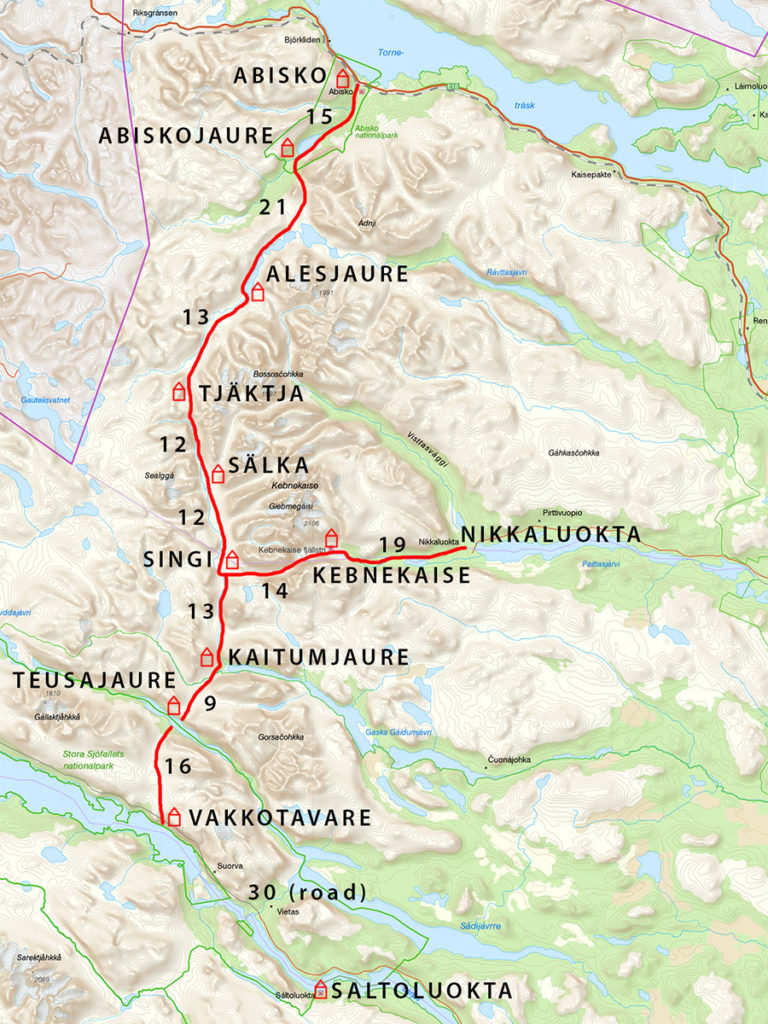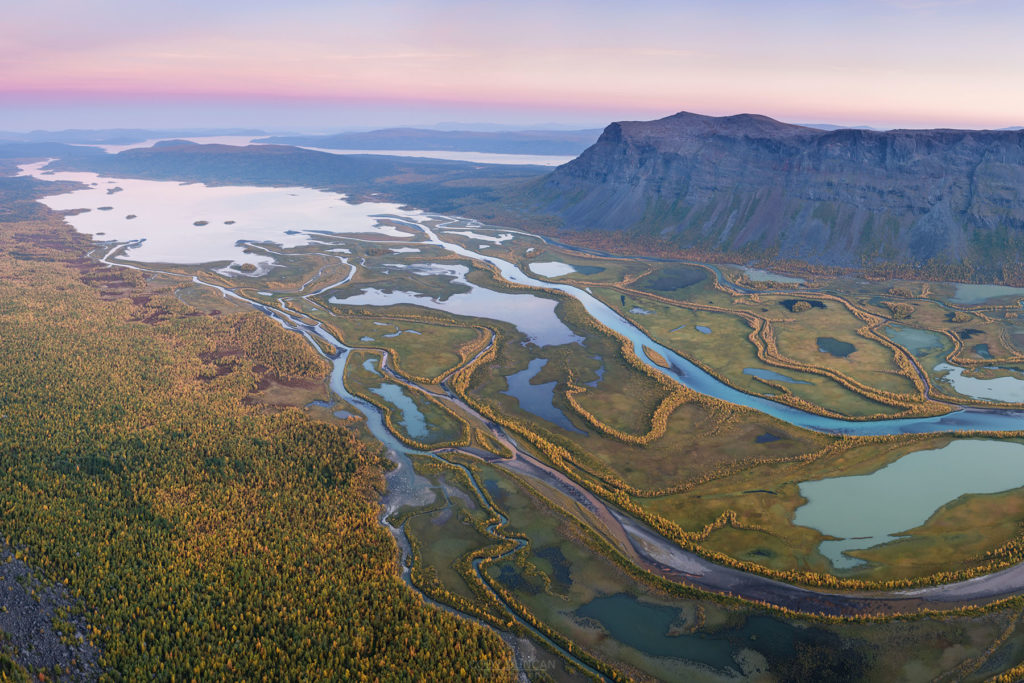The Kungsleden is a stunning trek full of Glaciers, majestic mountains and reindeer!
If you are considering taking on the Kungsleden, it will be useful to know that there are three different routes you can take, with hiking the northern part of the Kungsleden being the most popular.
The distances of the three routes on the Kungsleden are considerable.
In this article, we will focus on the first part of the northern route. Arriving in Abisko will feel like a journey all in itself. You must first take a flight from London to Stockholm, followed by a 20 hour train ride north to Abisko.
North – Abisko to Kvikkjokk – 216km
Middle – Kvikkjokk to Ammarnäs – 179km
South – Ammarnäs to Hemavan – 79km

The northern part of the Kungsleden
When to go?
Hiking the Kungsleden is popular with tourists coming in the summer. The high season is between July and August, when most snow will have been cleared from the ground. As with any Swedish Summer, you can’t guarantee the sunshine however. Hiking is still possible along the route in June and September, as the mountain huts are still open during these months.
The most recommended time to go is in September. As bright autumn colors combined a light layer of snow in parts, conjures up images of how Lapland should really look in all our imaginations! Also the lack of mosquitoes helps too!
What to take?
Surviving on the convenience stores which are at some parts of the route is expensive. It is advisable to bring enough food to last for 5-7 days and supplement it with luxuries as you go.
The rain is a continuous possibility in what ever month you go in, so decent shoes (gets very muddy!) and rain jackets are a must.
The awesome pure water supply cascading down from the water supply is very convenient. So decent sized water bottles are a good idea.
What do you stay?
In the diagram above, you can see the stops that have cabins along the way. The cabins provide:
- Shelter for a small fee (in shared cabins)
- Water sources
- Saunas and small shops
- Woodburners
What to see when hiking
Hiking the northern part of the kungsleden commences at Abisko with the first stop being Abiskojaure. As long as you towards the end of the season (September), here is a good place to see the Northern Lights.

Camping beside a lake along the route from Abiskojaure to Alesjaure
The next day’s walk to Alesjaure was 20k day, with views into Norway and a vast expanse of Blueberry meadows. Once we arrived, there was a supply of fresh water in the cabin which was so refreshing.
The route into Tjaktya includes the steepest climb, with snow still clinging to the mountainside and a chill in the air. When we arrived, we had our own rooms for the first time. The views back down the valley were incredible.
The Tjaktya valley is particularly incredible as there are meandering waterfalls and reindeer grazing the slopes.
Reindeer along the route
The majority of hikers decide to turn off and go to Singi. On this route you will pass Sweden’s highest mountain (located in Kebnekaise) and finish at Nikkaluokta. If you decide to keep trekking from Singi to Vakkorvare, the route will be much quieter.

The mountain trail at Kebnekaise
At Tesuajaure, you will need to take a boat (the first of 8 boat rides that Kungsleden offers). After arriving at Vakkotavare, you can take a bus for 200 crowns along the road to Saltoluoka, which everyone seems to do. This will save you a day’s hiking on the roadside.
Next, you will need to take a 10 minute boat ride to the mountain station at Saltoluoka. Here you will find modern amenities for you to enjoy, such as a well-stocked supermarket. Especially for those of you that want to carry on to the middle part of the route. This is also the gateway to the Serek national park, which offers hikers complete wilderness with no designated treks.

Panoramic view over Rapadalen from summit of Skierfe, Sarek National Park, Lapland, Sweden
For other insane hikes from other stories on Insanely Mad Adventures, check Colin’s trip across South Korea.

